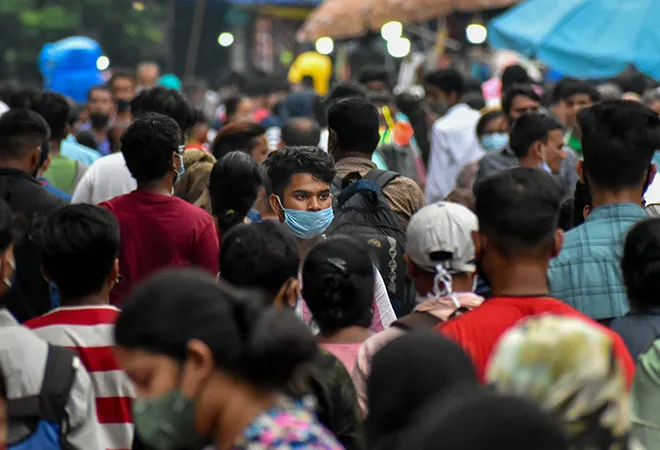-
CENTRES
Progammes & Centres
Location

‘All politics is local’. This quote from Tip O’Neil, the legendary Speaker of the House of Representatives, was often cited to me in the mid-1990s when I was a relatively junior diplomat in Washington DC striving to promote India’s foreign policy interests in the US Congress. In practical terms, it meant that a member of the House was more likely to take an interest in your issue if it could be linked back into his/her constituency. Awareness of the power of this axiom led to the formation of the India Caucus, an institution that has promoted Indo-US ties for a quarter of a century. An informed and active Indian-American community played a key role in this process.
The argumentative Indian has a strong opinion on most matters and an informed public can contribute to a more rational discourse on foreign policy issues, unless politics is in the air and the intention is to move public opinion in a particular direction.
India is no different when it comes to the impact of domestic influences on foreign policy. The argumentative Indian has a strong opinion on most matters and an informed public can contribute to a more rational discourse on foreign policy issues, unless politics is in the air and the intention is to move public opinion in a particular direction. The Ministry of External Affairs acknowledged this element when we started a Public Diplomacy initiative called ‘MEA Distinguished Lectures on Foreign Policy.’ The concept, when it was unrolled in 2010, was fairly simple. Emails were sent to Vice Chancellors and Directors of leading universities, IITs and IIMs to ask if they would like to host an ex-ambassador who would speak on a foreign policy topic of their choosing. It would, we thought, contribute to a more informed youth that would engage more actively in foreign policy issues. The response from academia was enthusiastic and almost 300 lectures were delivered over the next decade, covering everything from ties with neighbours to the nuances of multilateral diplomacy and climate change negotiations. But did it accomplish its goal?
It’s an ambitious initiative to try and unpack attitudes towards key foreign policy issues among urban youth aged 18-35 from 14 metro and non-metro cities across India.
A part of the answer may lie in the excellent survey titled ‘The ORF Foreign Policy Survey: Young India and the World’ carried out by the Observer Research Foundation. It’s an ambitious initiative to try and unpack attitudes towards key foreign policy issues among urban youth aged 18-35 from 14 metro and non-metro cities across India. The 18-35 demographic constitutes 27 percent of the urban population and the fact that the survey has been carried out among 2,037 persons in eight different languages probably makes it more representative. So, what are the foreign policy issues that occupy the mind space of a constituency that has a real stake in the nation’s future?
Some of the answers are along anticipated lines – the growing trust in the US, the antipathy towards Pakistan and even more so towards China. Others, however, are absolutely fascinating. Here are a few examples:
The Vaccine Maitri initiative begun by the government in January 2021 to provide vaccines to other countries enjoyed popular support before it became a political football.
India’s urban youth clearly have a fairly nuanced view of foreign policy issues. They see the big picture in terms of the economy, the pandemic and climate change. In fact, some of the survey findings are almost counter-intuitive and may offer an important guiderail, not just for practitioners of foreign policy but also for politicians who have a penchant for bringing up Pakistan whenever elections are around the corner. If ‘all politics is local’ and the voice of the youth matters in elections, this may be a good time to start listening to it.
This article is based on the findings of the ‘ORF Foreign Policy Survey 2021: Young India and The World’
The views expressed above belong to the author(s). ORF research and analyses now available on Telegram! Click here to access our curated content — blogs, longforms and interviews.